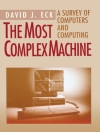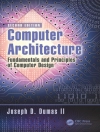As computers increasingly control the systems and services we depend upon within our daily lives like transport, communications, and the media, ensuring these systems function correctly is of utmost importance. This book consists of twelve chapters and one historical account that were presented at a workshop in London in 2015, marking the 25th anniversary of the European ESPRIT Basic Research project ‘Pro Co S’ (Provably Correct Systems).
The Pro Co S I and II projects pioneered and accelerated the automation of verification techniques, resulting in a wide range of applications within many trades and sectors such as aerospace, electronics, communications, and retail.
The following topics are covered:
- An historical account of the Pro Co S project
- Hybrid Systems
- Correctness of Concurrent Algorithms
- Interfaces and Linking
- Automatic Verification
- Run-time Assertions Checking
- Formal and Semi-Formal Methods
Provably Correct Systems provides researchers, designers and engineers with a complete overview of the Pro Co S initiative, past and present, and explores current developments and perspectives within the field.
Table des matières
Foreword.- Preface.-
Part I: Historic Account.- Pro Co S: How It All Began – As Seen from Denmark.-
Part II: Hybrid Systems .- Constraint-Solving Techniques for the Analysis of Probabilistic Hybrid Systems.- MARS: A Tool chain for Modelling, Analysis and Verification of Hybrid Systems.-
Part III: Correctness of Concurrent Algorithms .- A Proof Method for Linearizability on TSO Architectures.-
Part IV: Interfaces and Linking .- Linking Discrete and Continuous Models, Applied to Traffic Manoeuvres.- Towards Interface-Driven Design of Evolving Component-Based Architectures.-
Part V: Automatic Verification .- Computing Verified Machine Address Bounds during Symbolic Exploration of Code.- Engineering a Formal, Executable x86 ISA Simulator for Software Verification.- Advances in Connection-Based Automated Theorem Proving.-
Part VI: Run-Time Assertion Checking .- Run-Time Deadlock Detection.- In-Circuit Assertions and Exceptions for Reconfigurable Hardware Design.-
Part VII: Formal and Semi-Formal Methods.- From Pro Co S to Space and Mental Models – a Survey of Combing Formal and Semi-Formal Methods.-
Part VIII: Web-Supported Communities in Science .- Provably Correct Systems: Community, Connections and Citations.












